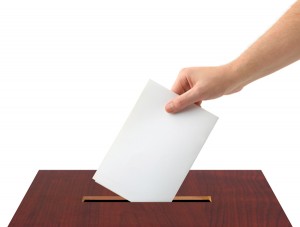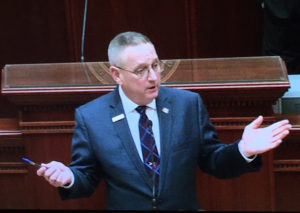 By Steve Brawner
By Steve Brawner
© 2017 by Steve Brawner Communications, Inc.
A couple of thousand mostly Democratic-leaning participants gave Sen. Tom Cotton an earful last week during his rowdy town hall meeting in Springdale. While civic engagement is good (and civil discourse would be even better), most of those folks would accomplish more by voting in the Republican Party primary.
That’s because, for the foreseeable future, Arkansas is going to be a mirror image of what it’s been for much of its past, and that’s a reliably one-party state. After 150 years of being dominated by Democrats and a brief period from 2008-12 when it was competitive, the state will be ruled by Republicans for a while, if not the rest of most of our lives.
Cotton knows this, which is why he was willing to endure an uncomfortable couple of hours that will not change the way he votes. He knows the people who took their shots at him represent a fraction of the state’s voters and were not going to vote for him anyway.
Most parts of Arkansas are dominated by one party at the state and national level – mostly the Republicans except in urban areas and parts of eastern Arkansas with high minority populations, which are decidedly Democrat.
That reality means we don’t have competitive races hardly anywhere. In the 2016 elections, President Trump beat Hillary Clinton 61-34, none of the congressional races were close (and only one even featured a Democrat), and only seven of the 41 competitive state legislative races were decided by less than 10 points, five in the Republican candidate’s favor. Three of those seven involved a Democratic incumbent losing to a Republican challenger.
So each May, Democratic voters in a lot of places may have to make the same choice some Republicans used to have to make: Voting in the other party’s primary for the candidate they can live with, and then voting in the general election for the doomed candidate they want – assuming their party fields a candidate.
Moving forward, the most important divides in Arkansas politics often are not going to be between Republicans and Democrats but between Republicans and other Republicans on an issue by issue basis. To use one example, at the national level, there’s a very real difference between how Cotton sees trade with Cuba (continue the embargo) and how Sen. John Boozman and U.S. Rep. Rick Crawford from the agricultural 1st District see it (open it up some).
At the state level, a number of issues are determined not by what the two parties argue about, but by which Republicans occupy Republican-dominated seats. A big issue this legislative session has been a proposed tort reform constitutional amendment that would cap the amount of punitive and noneconomic damages awarded in lawsuits. Democratic legislators are completely against it, and presumably so would be most of the attendees at the Cotton rally. But the issue has also split Republican legislators, some of whom oppose the proposal. Health care is on the back burner while everyone waits to see what happens in Washington. Once there’s more clarity there (whenever that happens), there’s going to be a huge fight at the State Capitol, often pitting Republicans against other Republicans.
If this sounds like I’m offering unsolicited advice to Democrats – I’m not, although somebody surely should. This message is for anyone of any persuasion who wants their vote to matter most. Aside from very important ballot initiatives like medical marijuana and tort reform, the state’s political direction will be decided at least as much in May party primaries as in November general elections. In fact, in Arkansas, that’s pretty much the way it’s always been.
By the numbers, 645,000 Arkansans voted in the 2016 primaries while 1.1 million voted in the general election, a difference of 500,000 people.
No doubt much of that was driven by the presidential race, which was a foregone conclusion in Arkansas in November but still competitive in May. As a result, in a state with 1.7 million registered voters, Trump won the Republican Party primary (and inevitably its six electoral votes) because 134,744 voted for him then, while the rest were voting somewhere else, for someone else, or not at all.
Those 134,744 voters had a lot louder voice than anyone at a town hall, it turns out.

